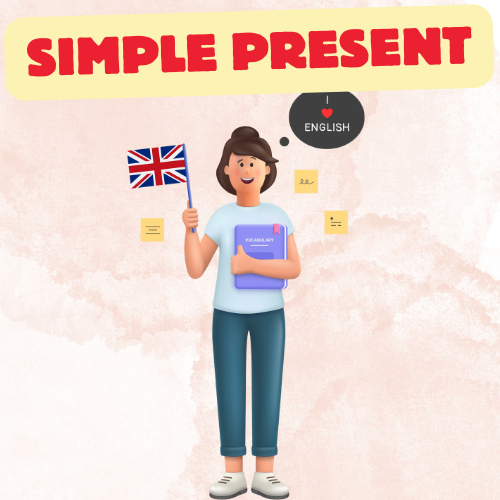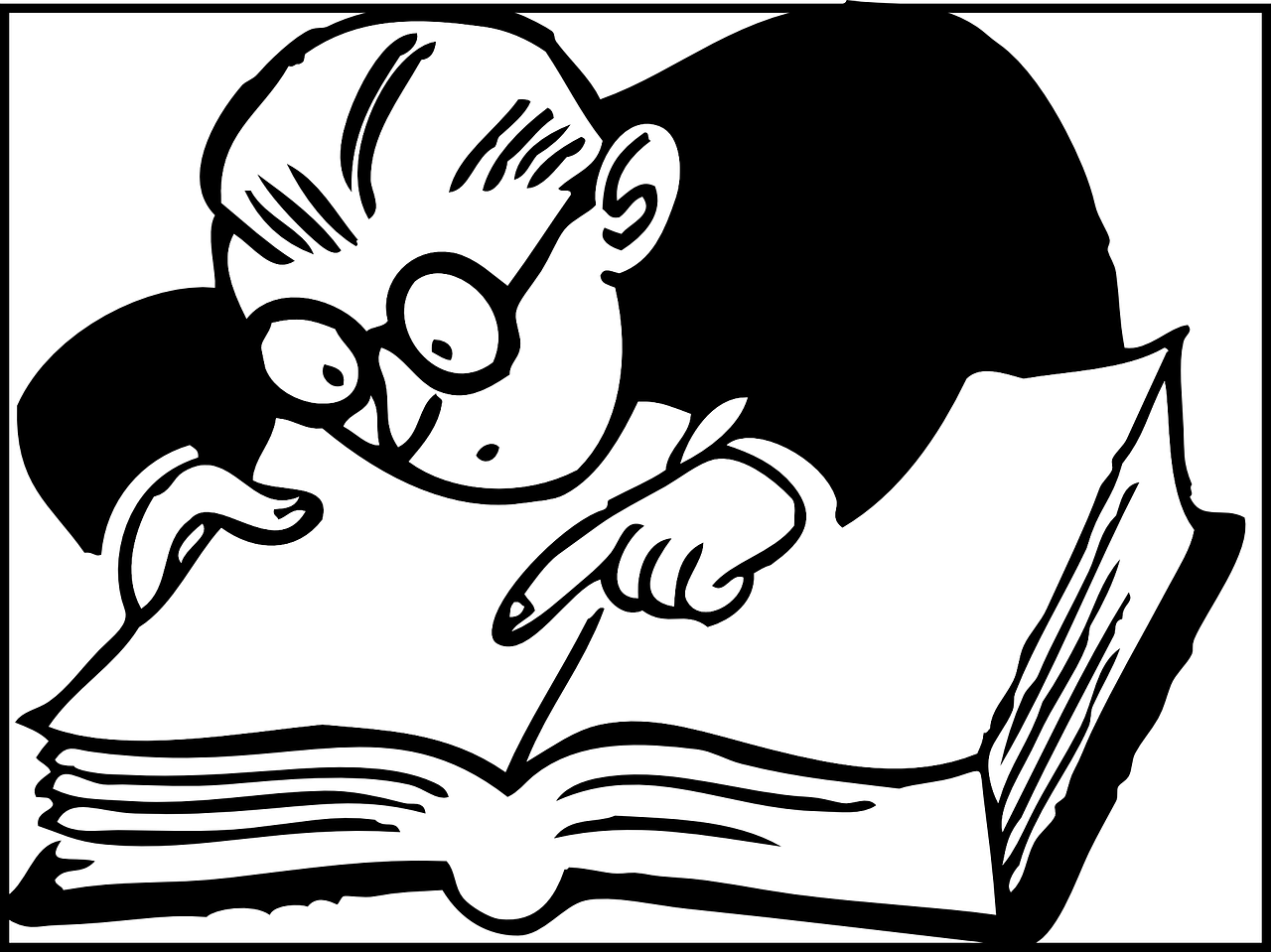

Introduction:
Welcome to our intermediate English learning lesson on the simple present tense! The simple present tense is a fundamental verb form used to describe habitual actions, general truths, and regular occurrences. Mastering this tense is essential for clear and accurate communication in English. In this lesson, you will learn how to form the simple present tense for both regular and irregular verbs, and see examples of their usage. Let's explore the simple present tense to enhance your grammar skills!
Lesson Content:
Explanation of the Simple Present Tense:
The simple present tense is used to describe actions that happen regularly, general truths, and habitual activities. It is one of the most commonly used tenses in English and is essential for expressing routine actions and universal facts.
Forming the Simple Present Tense:
For regular verbs, the simple present tense is formed by adding "-s" or "-es" to the base form of the verb in the third person singular (he, she, it).
For irregular verbs, the base form of the verb is maintained in the simple present tense regardless of the subject.
Regular Verbs:
Definition: Regular verbs form the simple present tense by adding "-s" or "-es" to the base form in the third person singular.
Examples:
"He eats breakfast every morning."
"She watches TV in the evening."
"It rains often in the spring."
Irregular Verbs:
Definition: Irregular verbs maintain the base form in the simple present tense, but may have unique changes in the third person singular.
Examples:
"She goes to school by bus."
"He does his homework after dinner."
"It has many benefits."
Exercises and Activities:
Practice forming sentences using the simple present tense with both regular and irregular verbs.
Identify the subject and verb in given sentences and determine if the verb is regular or irregular.
Convert sentences from other tenses to the simple present tense.
Introduction: Welcome to our intermediate English learning lesson on the simple present tense! The simple present tense is a fundamental verb form used to describe habitual actions, general truths, and regular occurrences.
Mastering this tense is essential for clear and accurate communication in English.
In this lesson, you will learn how to form the simple present tense for both regular and irregular verbs, and see examples of their usage.
Let's explore the simple present tense to enhance your grammar skills! Lesson Content: Explanation of the Simple Present Tense: The simple present tense is used to describe actions that happen regularly, general truths, and habitual activities.
It is one of the most commonly used tenses in English and is essential for expressing routine actions and universal facts.
Forming the Simple Present Tense: For regular verbs, the simple present tense is formed by adding "-s" or "-es" to the base form of the verb in the third person singular (he, she, it).
For irregular verbs, the base form of the verb is maintained in the simple present tense regardless of the subject.
Regular Verbs: Definition: Regular verbs form the simple present tense by adding "-s" or "-es" to the base form in the third person singular.
Examples: "He eats breakfast every morning." "She watches TV in the evening." "It rains often in the spring." Irregular Verbs: Definition: Irregular verbs maintain the base form in the simple present tense, but may have unique changes in the third person singular.
Examples: "She goes to school by bus." "He does his homework after dinner." "It has many benefits." Exercises and Activities: Practice forming sentences using the simple present tense with both regular and irregular verbs.
Identify the subject and verb in given sentences and determine if the verb is regular or irregular.
Convert sentences from other tenses to the simple present tense.
|
|

Simple present tenseSimple present tense |

He plays basketball every weekend.He plays basketball every weekend. |

regular verbsregular verbs |

She reads a book before bed.She reads a book before bed. |

irregular verbsirregular verbs |

They go swimming in the lake.They go swimming in the lake. |

playsplays |

He plays basketball every weekend.He plays basketball every weekend. |

readsreads |

She reads a book before bed.She reads a book before bed. |

goesgoes |

They go swimming in the lake.They go swimming in the lake. |

playsplays |

The children play in the park.The children play in the park. |

watcheswatches |

She watches TV in the evening.She watches TV in the evening. |

writeswrites |

He writes emails to his friends.He writes emails to his friends. |

eatseats |

They eat lunch at noon.They eat lunch at noon. |

drinksdrinksThe verb "drinks" typically describes the action of consuming liquid, usually referring to the act of ingesting a beverage such as water, juice, or coffee. |

She drinks tea in the morning.She drinks tea in the morning. |

listenslistens |

He listens to music while working.He listens to music while working. |

worksworks |

She works in an office.She works in an office. |

playsplays |

They play video games after school.They play video games after school. |

sleepssleeps |

He sleeps early at night.He sleeps early at night. |

wakes upwakes up |

She wakes up at 7 AM every day.She wakes up at 7 AM every day. |

getsgets |

He gets up early in the morning.He gets up early in the morning. |

takestakes |

She takes the bus to work.She takes the bus to work. |

buysbuys |

He buys groceries every week.He buys groceries every week. |

helpshelps |

She helps her parents with chores.She helps her parents with chores. |

likeslikes |

He likes to play guitar.He likes to play guitar. |

learnslearns |

She learns English online.She learns English online. |

studiesstudiesThe verb "studies" generally means the act of examining, researching, or learning about a subject in a systematic and focused manner. |

He studies for exams in the evening.He studies for exams in the evening. |

opensopens |

She opens the window in the morning.She opens the window in the morning. |

closescloses |

He closes the door at night.He closes the door at night. |

waitswaits |

She waits for the bus at the stop.She waits for the bus at the stop. |

runsrunsThe verb "runs" typically refers to the action of moving swiftly on foot, or operating or functioning, such as a machine, organization, or system. |

He runs in the park every morning.He runs in the park every morning. |

walkswalks |

She walks her dog in the evening.She walks her dog in the evening. |

jumpsjumps |

He jumps high during sports.He jumps high during sports. |

swimsswims |

She swims in the pool.She swims in the pool. |

fliesflies |

The bird flies in the sky.The bird flies in the sky. |

drivesdrivesThe verb "drives" typically refers to the action of operating a vehicle, guiding it along a route or path, usually with the intention of reaching a destination. |

He drives a car to work.He drives a car to work.The verb "drives" typically refers to the action of operating a vehicle, guiding it along a route or path, usually with the intention of reaching a destination. |

ridesrides |

She rides a bicycle to school.She rides a bicycle to school. |

speaksspeaks |

He speaks English fluently.He speaks English fluently. |

listenslistens |

She listens to the radio in the car.She listens to the radio in the car. |

dancesdancesThe verb "dances" refers to the action of moving rhythmically to music, typically involving coordinated movements of the body and limbs. |

He dances at parties.He dances at parties. |

singssings |

She sings in the choir.She sings in the choir. |

playsplays |

They play chess together.They play chess together. |

worksworks |

He works hard to achieve his goals.He works hard to achieve his goals. |

studiesstudiesThe verb "studies" generally means the act of examining, researching, or learning about a subject in a systematic and focused manner. |

She studies diligently for exams.She studies diligently for exams. |

readsreads |

He reads the newspaper every morning.He reads the newspaper every morning. |

watcheswatches |

She watches movies on weekends.She watches movies on weekends. |

practicespractices |

He practices piano daily.He practices piano daily. |

exercisesexercises |

She exercises at the gym regularly.She exercises at the gym regularly. |

restsrests |

He rests on Sundays.He rests on Sundays. |

relaxesrelaxes |

She relaxes by reading novels.She relaxes by reading novels. |

enjoysenjoys |

He enjoys gardening on weekends.He enjoys gardening on weekends. |

appreciatesappreciates |

She appreciates nature.She appreciates nature. |

respectsrespects |

He respects his elders.He respects his elders. |

helpshelps |

She helps her friends when needed.She helps her friends when needed. |

volunteersvolunteers |

He volunteers at the local shelter.He volunteers at the local shelter. |

participatesparticipates |

She participates in community events.She participates in community events. |

contributescontributes |

He contributes to charity organizations.He contributes to charity organizations. |

carescares |

She cares for stray animals.She cares for stray animals. |

sharesshares |

He shares his knowledge with others.He shares his knowledge with others. |

supportssupports |

She supports environmental causes.She supports environmental causes. |

promotespromotes |

He promotes eco-friendly practices.He promotes eco-friendly practices. |

encouragesencourages |

She encourages others to recycle.She encourages others to recycle. |

inspiresinspires |

He inspires people with his speeches.He inspires people with his speeches. |

motivatesmotivates |

She motivates her team to succeed.She motivates her team to succeed. |

teachesteaches |

He teaches children at a school.He teaches children at a school. |

learnslearns |

She learns new skills regularly.She learns new skills regularly. |

growsgrows |

He grows vegetables in his garden.He grows vegetables in his garden. |

flowersflowers |

She flowers in her vase.She flowers in her vase. |

thrivesthrives |

He thrives in challenging situations.He thrives in challenging situations. |

excelsexcels |

She excels in her studies.She excels in her studies. |

succeedssucceeds |

He succeeds in his endeavors.He succeeds in his endeavors. |

achievesachieves |

She achieves her goals.She achieves her goals. |

progressesprogresses |

He progresses in his career.He progresses in his career. |

developsdevelops |

She develops innovative solutions.She develops innovative solutions. |

innovatesinnovates |

He innovates new technologies.He innovates new technologies. |

transformstransforms |

She transforms ideas into reality.She transforms ideas into reality. |

adaptsadapts |

He adapts to changing circumstances.He adapts to changing circumstances. |

overcomesovercomes |

She overcomes obstacles.She overcomes obstacles. |

perseveresperseveres |

He perseveres through difficulties.He perseveres through difficulties. |

strivesstrives |

She strives for excellence.She strives for excellence. |

fulfillsfulfills |

He fulfills his responsibilities.He fulfills his responsibilities. |

accomplishesaccomplishes |

She accomplishes great feats.She accomplishes great feats. |

celebratescelebrates |

He celebrates his achievements.He celebrates his achievements. |

rewardsrewards |

She rewards herself for hard work.She rewards herself for hard work. |

supportssupports |

He supports his family financially.He supports his family financially. |

nurturesnurtures |

She nurtures her relationships.She nurtures her relationships. |

cherishescherishes |

He cherishes memories.He cherishes memories. |

expressesexpresses |

She expresses her feelings openly.She expresses her feelings openly. |

communicatescommunicates |

He communicates effectively.He communicates effectively. |

interactsinteracts |

She interacts with people from diverse backgrounds.She interacts with people from diverse backgrounds. |

connectsconnects |

He connects with others emotionally.He connects with others emotionally. |

engagesengages |

She engages in meaningful conversations.She engages in meaningful conversations. |

listenslistens |

He listens attentively to others.He listens attentively to others. |

understandsunderstands |

She understands different perspectives.She understands different perspectives. |

empathizesempathizes |

He empathizes with people's feelings.He empathizes with people's feelings. |

respectsrespects |

She respects everyone's opinions.She respects everyone's opinions. |

appreciatesappreciates |

He appreciates kindness.He appreciates kindness. |

valuesvalues |

She values honesty.She values honesty. |

supportssupports |

He supports justice.He supports justice. |

upholdsupholds |

She upholds integrity.She upholds integrity. |

adheresadheres |

He adheres to principles.He adheres to principles. |

defendsdefends |

She defends human rights.She defends human rights. |

empowersempowers |

He empowers marginalized communities.He empowers marginalized communities. |

promotespromotes |

She promotes equality.She promotes equality. |

fostersfosters |

He fosters inclusivity.He fosters inclusivity. |

advocatesadvocates |

She advocates for social justice.She advocates for social justice. |

inspiresinspires |

He inspires change.He inspires change. |

transformstransforms |

She transforms lives.She transforms lives. |

createscreates |

He creates opportunities.He creates opportunities. |

nurturesnurtures |

She nurtures talents.She nurtures talents. |

encouragesencourages |

He encourages dreams.He encourages dreams. |

empowersempowers |

She empowers individuals.She empowers individuals. |

succeedssucceeds |

He succeeds against all oddsHe succeeds against all odds |
Congratulations! You have now learned how to use the simple present tense to describe habitual actions, general truths, and regular occurrences.
By understanding the rules for forming the simple present tense with regular and irregular verbs, you can communicate more effectively in English.
Keep practicing with exercises and activities to solidify your understanding and improve your grammar skills.